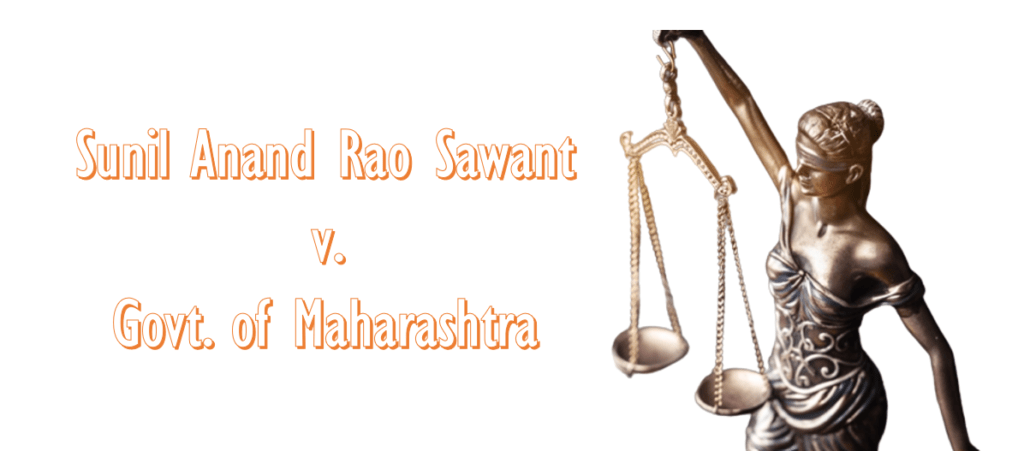
FACTS OF THE CASE:
Anand Rao Sawant vs Government of Maharashtra is a landmark case in Indian jurisprudence, which dealt with the constitutional validity of the Reservation policy in public services in India. The case was heard by a five-judge bench of the Supreme Court of India, and the verdict was delivered on 16th November 1978. The Maharashtra State Government issued a notification in 1974, which provided for a 70% reservation in favor of backward classes and scheduled castes and tribes in the recruitment of officers and employees in public services. Anand Rao Sawant, a candidate who belonged to the open category, challenged this policy on the grounds that it violated his fundamental rights under Article 14, 15, and 16 of the Constitution of India. He argued that the reservation policy was discriminatory and deprived him of equal opportunity in public services.
ISSUES RAISED
- Constitutionality of Reservation Policy:
The primary issue in the case was the constitutionality of the reservation policy in public services. The petitioner argued that the reservation policy violated his fundamental rights under Article 14, 15, and 16 of the Constitution, which guarantee the right to equality before law, prohibition of discrimination on grounds of religion, race, caste, sex, or place of birth, and equal opportunity in matters of public employment. The government, on the other hand, argued that the reservation policy was necessary for the upliftment of the socially and educationally backward classes and scheduled castes and tribes.
- Principle of Meritocracy:
Another issue raised in the case was the principle of meritocracy in public services. The petitioner argued that the reservation policy compromised the quality of services in public sectors by selecting candidates based on their caste rather than their merit. The government, on the other hand, argued that the reservation policy was based on the principle of social justice and affirmative action, which was necessary to correct historical injustices and promote diversity in public services.
ARGUMENTS
APPELANT:
- The reservation policy is discriminatory and violates the fundamental rights of the citizens.
- The reservation policy is against the principle of meritocracy and equal opportunity.
- The reservation policy has resulted in the compromise of the quality of services in public sectors.
RESPONDENTS:
- The reservation policy is necessary for the upliftment of the backward classes and scheduled castes and tribes.
- The reservation policy is based on the principle of social justice and affirmative action.
- The reservation policy is consistent with the constitutional framework of India.
JUDGMENT
The Supreme Court of India upheld the validity of the reservation policy with certain modifications. The key points of the judgment are as follows:
- The reservation policy is valid under Article 16(4) of the Constitution, which allows the State to make special provisions for the advancement of any socially and educationally backward classes of citizens.
- The reservation policy should not exceed 50% of the total number of vacancies in public services.
- The reservation policy should be based on objective criteria and should not be applied mechanically.
- The reservation policy should be reviewed periodically to ensure that it does not perpetuate caste-based discrimination.
- The Supreme Court also emphasized that the reservation policy is not a substitute for the eradication of poverty and the improvement of the educational and economic conditions of the backward classes and scheduled castes and tribes.
CONCLUSION
The Anand Rao Sawant vs Government of Maharashtra case has had a significant impact on the reservation policy in India. The judgment has reaffirmed the constitutional validity of the reservation policy while ensuring that it is based on objective criteria and does not perpetuate caste-based discrimination. The judgment has also limited the percentage of reservation to 50%, which has prevented the excessive use of reservation. Overall, the judgment has upheld the principle of social justice while balancing the interests of all sections of the society.
This article is written by Soumya Gupta, an intern under Legal Vidhiya




0 Comments